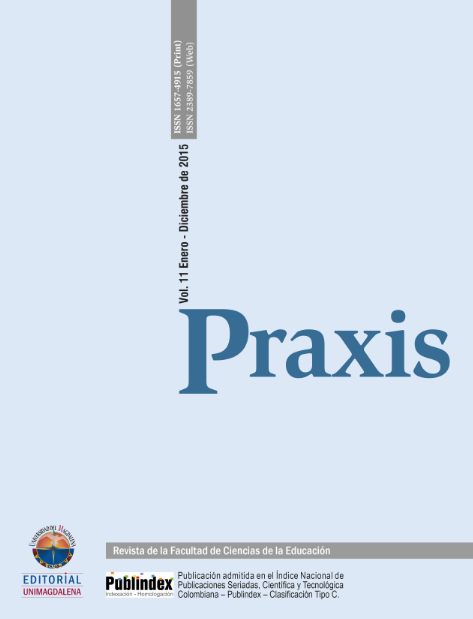Abstract
This article shows that it is not rare to have as its primary objective reality of knowledge, which must focus on human progress through scientific research. Knowing and knowing something (dilemma resides in humans) is becoming a problem in their daily lives. Knowledge is an organism with life as it changes and is enriched with new experiences, so that can go from an initial state to a more complex and more efficient final state, thanks to the main features of the new scientific knowledge or interpretation on any issue. Every scientist has a different concept of truth, as explained knowledge in various forms and also defined scientific theory as a metaphor, considering that science is a knowledge of the unit, while the opinions are merely from the crowd.References
Balmes, J. (1987). El criterio. México. Editorial Porrúa.
Barragan, H. (1977). Epistemología. Bogotá. Unión Gráfica Ltda.
Bautista, N. (2011). Proceso de la Investigación cualitativa. Epistemología, metodología y aplicaciones. Bogotá. Editorial Manual Moderno.
Bunge, M. 1958. LA CIENCIA, su método y su filosofía. Buenos Aires, Editorial Siglo Veinte.
De La Maza, C. y Villanueva, L. (2011). Diseño de investigación aplicado a las ciencias del medio ambiente. Santiago de Chile. Editorial Universitaria.
Hessen, J. (2002). Teoría del conocimiento. Bogotá. Momo Ediciones.
Garcia, J. y Giacobbe, M. (2009). Nuevos desafíos en investigación. Teorías, métodos, técnicas e instrumentos. Rosario. Homo Sapiens Ediciones.
Kuhn, T. (1989). ¿Qué son las revoluciones científicas? Y otros ensayos. Buenos Aires. Ediciones Paidós.
Kuhn, T. (1998). La estructura de las revoluciones científicas. D´vinni Editorial. Santafé de Bogotá. Fondo de cultura económica.
Lakoff, G. y Johnson, M. (1991). Metóforas de la vida cotidiana. Madrid. Ediciones Cátedra.
Palma, H. (2004). Metáforas en la evolución de las ciencias. Buenos Aires. Jorge Buadino Ediciones.
Puledda, S. (1996). Interpretaciones históricas del humanismo. Santiago de Chile. Ediciones Corfhu.
Sabino, C. (1980). El proceso de investigación. Santafé de Bogorá. El Cid Editor.
Samaja, J. (2010). Epistemología y metodología, elementos para una teoría de la investigación científica. Buenos Aires. Editorial Universitaria de Buenos Aires – Eudeba.
Savater, F. (1999). Las preguntas e la vida. Barcelona. Editorial Ariel, S.A.
Ynoub, R. (2012). Inédito I: La ciencia como práctica social: bases para situar el examen del proceso de investigación científica en sentido pleno. Buenos Aires. Inédito. p. 1 – 49.
Ynoub, R. (2012). El proyecto y la metodología de la investigación. Buenos Aires. Cengage Learning.

